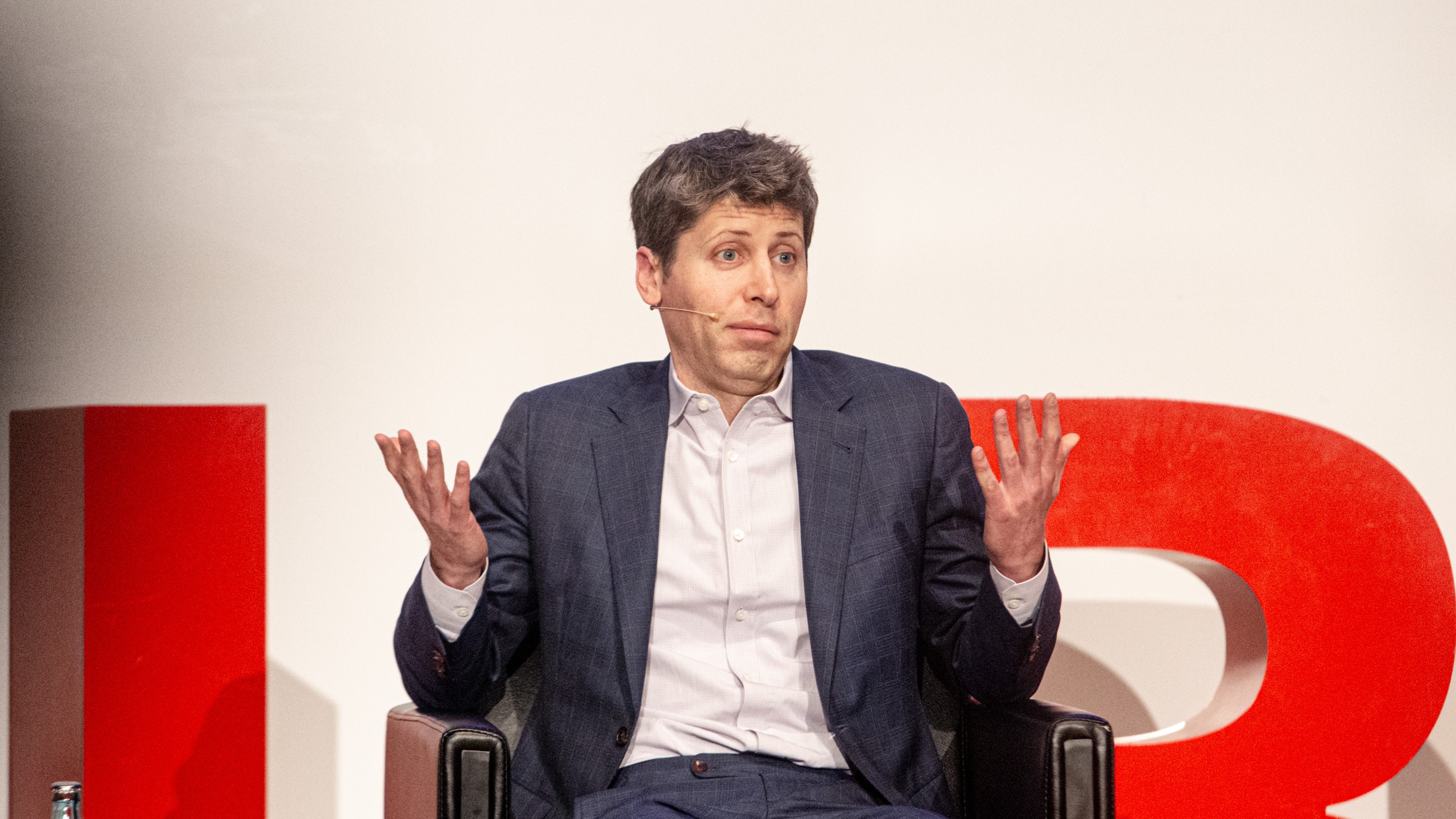OpenAI might skip GPT‑6 entirely — and the reason is stranger than you think
OpenAI’s CEO Sam Altman teased that the next ChatGPT might not be called GPT‑6 at all — but GPT‑6‑7, a tongue‑in‑cheek nod to Gen Alpha slang that could hint at deeper branding shifts.

All the latest news, reviews, and guides for Windows and Xbox diehards.
You are now subscribed
Your newsletter sign-up was successful
Earlier this year, OpenAI launched GPT-5, which can arguably be considered the most sought-after and long-anticipated AI model to date. This can be attributed to comments from key leaders in the industry like CEO Sam Altman, who promised with "a high degree of scientific certainty" that GPT-5 will be smarter than GPT-4 (which he admitted "kind of sucks").
However, the model seemingly failed to meet these high expectations, with multiple users expressing their frustrations with the upgrade, further claiming that it has degraded ChatGPT's user experience.
Even Microsoft co-founder Bill Gates had already predicted that OpenAI's GPT technology had plateaued, citing modest improvements 2 years prior to GPT-5's launch. However, Tesla CEO and billionaire Elon Musk seems to think that it could be a worthwhile upgrade. "OpenAI is going to eat Microsoft alive," Musk indicated following the model's launch.
But as it now seems, the ChatGPT maker might be looking to spice things up with GPT-5's successor. Well, at least according to the topical moniker OpenAI "plans" to use for the model.
OpenAI CEO Sam Altman recently indicated that "GPT-6 will be renamed GPT-6-7, you're welcome" via a post on X.
GPT-6 will be renamed GPT-6-7, you're welcomeOctober 30, 2025
For context, 6-7 is a viral term amongst Gen Alpha with an ambiguous meaning. However, Dictionary.com announced 6-7 as 2025 Word of the Year, though the site admitted that it's still trying to figure out what the term actually means.
I tried doing a bit of research on the term, but ended up even more confused. As far as I can tell, the term seems to have originated from a rap song. It's also been mentioned in South Park, and now it seems to be etched in the fabric of every school hall across the US and even the UK.
All the latest news, reviews, and guides for Windows and Xbox diehards.
Ultimately, it seems like a catchy slang word with no apparent meaning. While speaking to CNN, Gabe Dannenbring, a seventh-grade science teacher in Sioux Falls, South Dakota, indicated:
“It’s like a plague — a virus that has taken over these kids’ minds. You can’t say any iteration of the numbers 6 or 7 without having at least 15 kids yell, ‘6-7!’”
It's unclear if Sam Altman is serious about renaming GPT-6 to GPT-6-7 or if he was just joking and hopping onto the hype. As bizarre as some tech moves can be, they could have the slightest hint of being an earnest, strategic move to foster more interest in AI among the youth.
Nobody knows what it means. And that’s kind of the funny thing about it.
Gabe Dannenbring, a seventh-grade science teacher
That said, emerging trends and studies show that the youth are ditching traditional and conventional search engines like Google and Bing for AI tools like ChatGPT, which provides easy-bake answers and responses to queries, alleviating the need to read through giant blocks of text.
This can also be presumed as a subtle, more realistic hint from the executive, suggesting that OpenAI is already developing its next-gen flagship AI model poised to succeed GPT-5.
FAQ
What will OpenAI's GPT-5 successor be called?
According to a recent post on X by OpenAI CEO Sam Altman, the company might jokingly call GPT-5's successor GPT-6-7, potentially matching Gen Alpha's word of the year. However, it seems the company initially planned to simply call the AI model GPT-6 before the term went viral, which is more realistic.
What does 6-7 mean?
Most sources online don't seem to have a clear definition for the term, which seems to be the whole concept behind it. You can literally use it in multiple contexts, with Gen Alpha often chanting the term whenever any iteration of the numbers 6 or 7 is presented.
Why did ChatGPT users hate the GPT-5 upgrade?
Multiple users claimed that the AI model degraded the chatbot's user experience, blatantly expressing their preference for GPT-4o as it provided a more personalized user experience. Sam Altman indicated that some users had developed unhealthy relationships with the chatbot, creating an over-reliance since they never had anyone to support them in that way.

Follow Windows Central on Google News to keep our latest news, insights, and features at the top of your feeds!

Kevin Okemwa is a seasoned tech journalist based in Nairobi, Kenya with lots of experience covering the latest trends and developments in the industry at Windows Central. With a passion for innovation and a keen eye for detail, he has written for leading publications such as OnMSFT, MakeUseOf, and Windows Report, providing insightful analysis and breaking news on everything revolving around the Microsoft ecosystem. While AFK and not busy following the ever-emerging trends in tech, you can find him exploring the world or listening to music.
You must confirm your public display name before commenting
Please logout and then login again, you will then be prompted to enter your display name.
